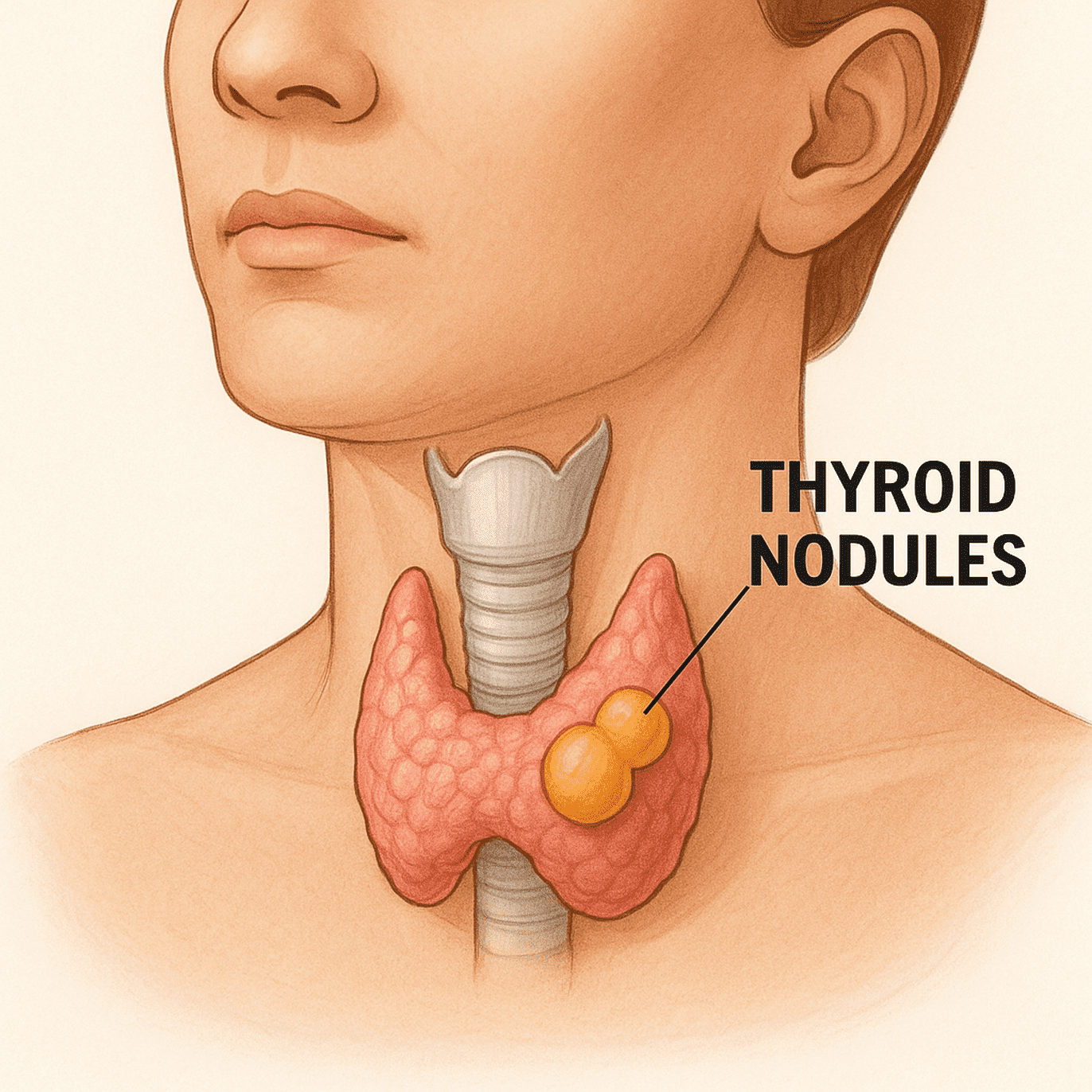
Have you noticed a lump in your neck or subtle changes in your voice? These may be some of the common symptoms of thyroid nodules. Thyroid nodules are more common than you might think, and while most are harmless, some can signal underlying health issues. Recognizing the signs early can make all the difference. In this article, we’ll explore the 7 most common symptoms of thyroid nodules you shouldn’t ignore, so you can take charge of your thyroid health with confidence.
Thyroid nodules are lumps that form within the thyroid gland, located at the base of your neck. Most nodules are benign (non-cancerous), but a small percentage can be malignant. According to the American Thyroid Association, up to 50% of people may develop a thyroid nodule by age 60, though most will never cause problems.
Early detection of thyroid nodules can lead to better outcomes, especially if the nodule is cancerous or causing hormonal imbalances. Many nodules are found during routine exams, but knowing the symptoms can help you seek care sooner.
The most common sign is a visible or palpable lump at the base of your neck.
Sometimes, friends or family may notice it before you do.
A nodule pressing on your esophagus can make swallowing uncomfortable or difficult.
This symptom should never be ignored, especially if it worsens over time.
Nodules near the voice box can cause persistent hoarseness or changes in your voice.
If your voice is raspy for more than two weeks, consult a doctor.
A cough that doesn’t go away and isn’t related to a cold could be due to a thyroid nodule.
This is especially important if you don’t have other respiratory symptoms.
Some nodules cause discomfort or pain in the neck, jaw, or ear.
While not always present, pain should be evaluated if it persists.
Large nodules can press on the windpipe, making it hard to breathe, especially when lying down.
Seek immediate medical attention if you experience shortness of breath.
Some nodules affect thyroid hormone production, leading to symptoms like weight changes, fatigue, or rapid heartbeat.
Both hyperthyroidism and hypothyroidism can be linked to nodules.
If you notice any of these symptoms—especially a new lump, difficulty swallowing, or trouble breathing—schedule an appointment with a healthcare provider.
Early evaluation can rule out serious conditions and provide peace of mind.
Doctors may use physical exams, ultrasound, blood tests, and fine-needle aspiration biopsy to evaluate thyroid nodules. Most nodules are benign, but regular monitoring is important.
According to Dr. Shailesh Kumar Garge of Citi Vascular Hospital,
“Most thyroid nodules are harmless, but persistent symptoms should always be checked. Early diagnosis is key to effective treatment.”
A 2023 review in Stat Pearls notes that only about 5–10% of thyroid nodules are cancerous, but evaluation is essential for proper care.
Recognizing the symptoms of thyroid nodules can help you seek timely care and protect your health. If you notice any warning signs, don’t wait—consult a healthcare professional for evaluation. Early action can make all the difference for your thyroid and overall well-being.
Contact Citi Vascular Hospital in Hyderabad today for expert thyroid diagnosis and treatment.
Call: +91 7337583901
Q1: Are thyroid nodules always cancerous?
No, most thyroid nodules are benign. Only a small percentage are cancerous.
Q2: What causes thyroid nodules?
Causes include iodine deficiency, thyroid inflammation, and genetic factors.
Q3: How are thyroid nodules treated?
Treatment depends on the cause and may include monitoring, medication, or surgery.
This article is for informational purposes only and does not substitute professional medical advice. Always consult a qualified healthcare provider for diagnosis and treatment.